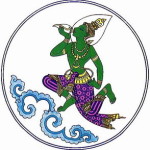
The United States and Thailand have begun working more closely together on the issue of human trafficking. Cooperation has intensified between the two countries as a team of experts from the Department of Homeland Security arrived in the Kingdom last week at the invitation of the Royal Thai Police to study the situation and share their expertise and experience in the fight against human trafficking.
A spokesman for the Homeland Security team at the U.S. embassy in Bangkok, Robert Abrams, called the Thai authorities campaign human trafficking “very impressive” after being briefed by the Thai police, according to Phuketwan, an English-language newspaper.
”Significant resources are being brought to bear,” Abrams said. ”We are eager to share findings with our colleagues.”
The Thai law enforcement has made over a hundred arrests of human traffickers in recent months. The arrests followed the discovery in March of virtual prison camps in the south where traffickers held migrants against their will. It was the largest series of trafficking arrests in Thai history, and police have vowed they will apprehend more suspects in the near future.
After Thailand uncovered the trafficking camps, neighboring Malaysia also found several camps on its side of the border. On Sunday, Malaysian police unearthed another 24 skeletons of what they believe to be trafficking victims near its border with Thailand. Most migrants from Bangladesh and Myanmar try to reach Malaysia, but many fall into the hands of transnational trafficking gangs.
Despite this impressive level of commitment and results by the Thai police, transnational criminal syndicates involved in human trafficking are constantly developing new methods to evade law enforcement, and so the Thai police have been seeking assistance from their counterparts in the U.S.
Abrams said the Homeland Security team would be in Thailand for another three weeks, learning about the local situation and offering their advice based on similar battles against trafficking gangs in the United States.
Abrams said official complicity and corruption in general was a problem faced by most police forces in most countries. “To their credit, our Thai colleagues have been honest about what they have found,’” he said, noting that several police officers have been arrested and others are under investigation for involvement in trafficking.
”It seems as though the Thais are actively trying to curtail . . . possible complicity and the role police corruption plays in these cases,” he said.
The Homeland Security team has visited Bangkok, Phuket and Hat Yai. Team members will be exchanging information with police, Marine Police, Social Development and Human Security officials, the Department of Special Investigation and other government agencies.
For more information and updates about Thailand’s policies and actions against trafficking in persons and related issues, visit www.thaianti-humantraffickingaction.org




